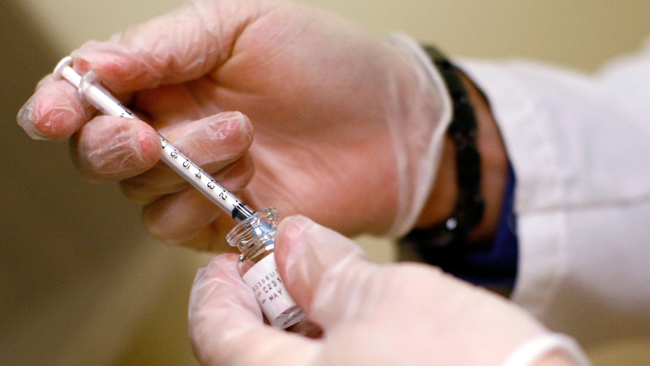As COVID-19 cases spiral out of control, some local doctors are raising concerns about the increasing number of younger adults who are becoming infected.
According to data collected by San Diego County, more than 40% of positive cases are traced back to people between the ages of 20-40.
Dr. Michele Ritter, an infectious-disease specialist and director of the COVID-19 Telemedicine Clinic at UC San Diego Health, said she believes there may be many more infected patients in that age group who are asymptomatic and haven’t been tested.
“The trajectory is pretty awful looking right now," Ritter said. "It’s a very steep curve we’re climbing up. We are keeping very busy.... We’re recruiting more doctors just because we know what’s ahead of us.
Ritter said the recruiting is being done in preparation for what is expected to be more positive cases over the holiday season. Many people have been traveling and gathering with people outside their households, despite medical experts warning against it.
“Well, I feel like I’m in the midst of it all because I am within that age range,” said Angelica Imhoede, who was visiting San Diego from Minnesota. "I’m not shocked. I think a lot of people want to be safe, but I think it’s really hard to be safe because people need to get out I definitely practice social distancing, so when we get back home, I’m not going to see family members who are in that [high risk] age range because I want to make sure they’re safe.”
Another visitor to the area told NBC 7 that she hoped that younger adults are being responsible with who they’re interacting with.
Local
“It just kind of depends," said Bethany Alger, who is visiting from Arizona. "If the 20-40 age group is interacting with the older population, then it would be more of a problem."
Ritter said had seen evidence that increasing interactions outside of single household are becoming a problem.
“I’ve seen six patients this morning, and two of the six have a mother and grandmother who are in the ICU with COVID-19…. I think the way we’ve got to practice safety right now is: just assume everyone has it who’s outside your household,” Ritter said.
Ritter also said it’s important to have a good understanding of incubation and testing.
“If you had an exposure, you have up to 14 days to turn positive, and you can’t predict when it’s going to happen in those 14 days….The other thing is that even though you get a negative test early on after exposure, it doesn’t mean that you cannot get a positive test the next day,” Ritter explained.
Ritter also said rapid tests have a higher chance of producing false-negative results and advised people instead to get PCR tests.



